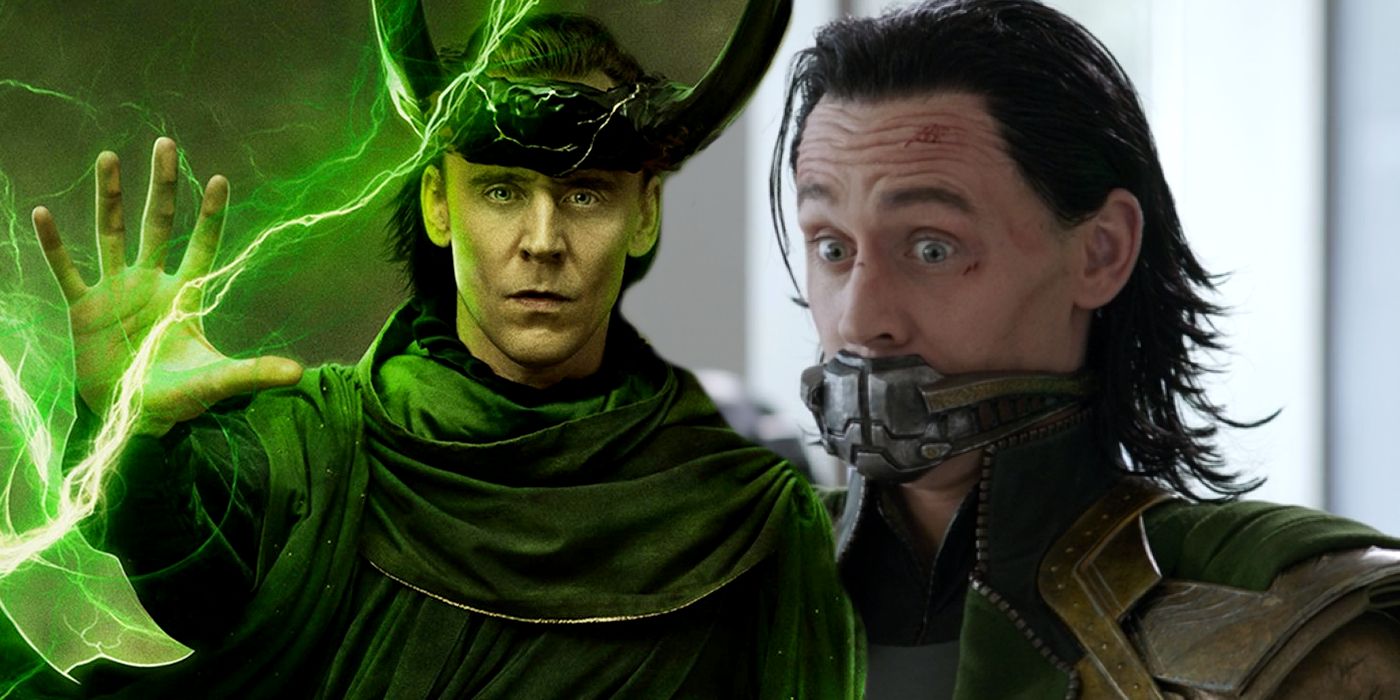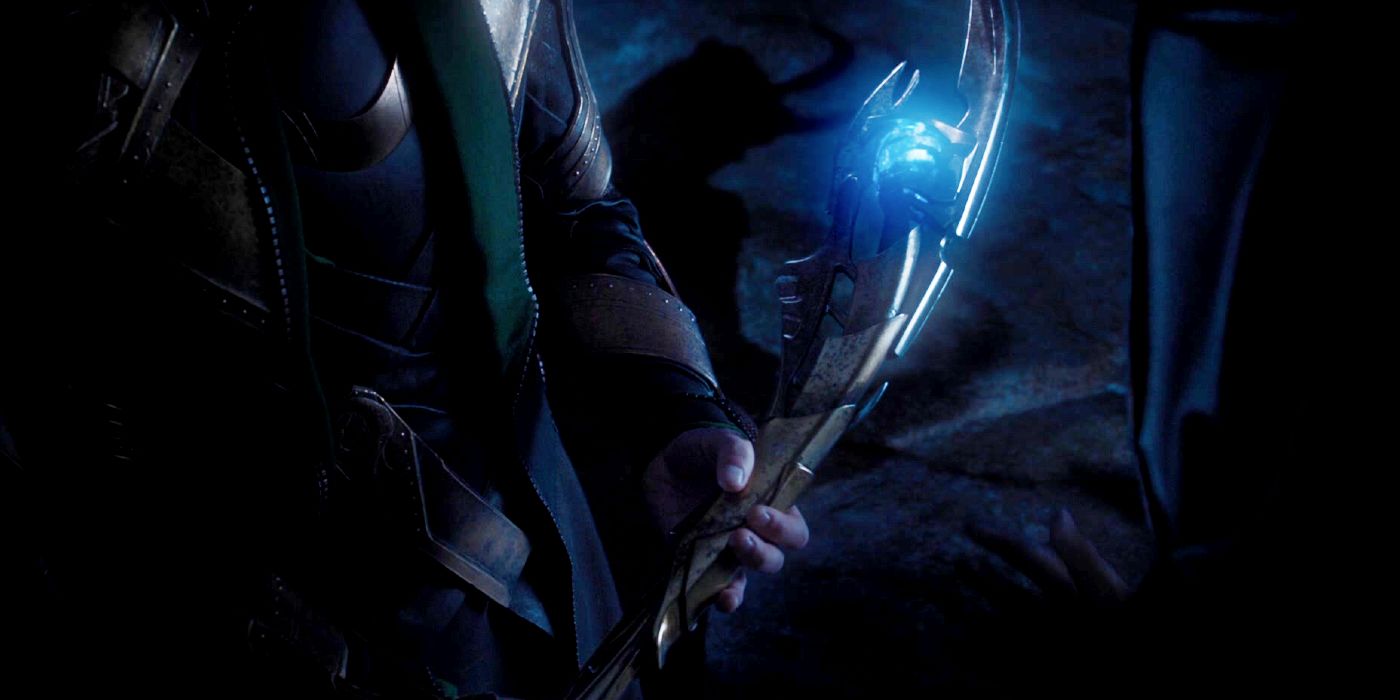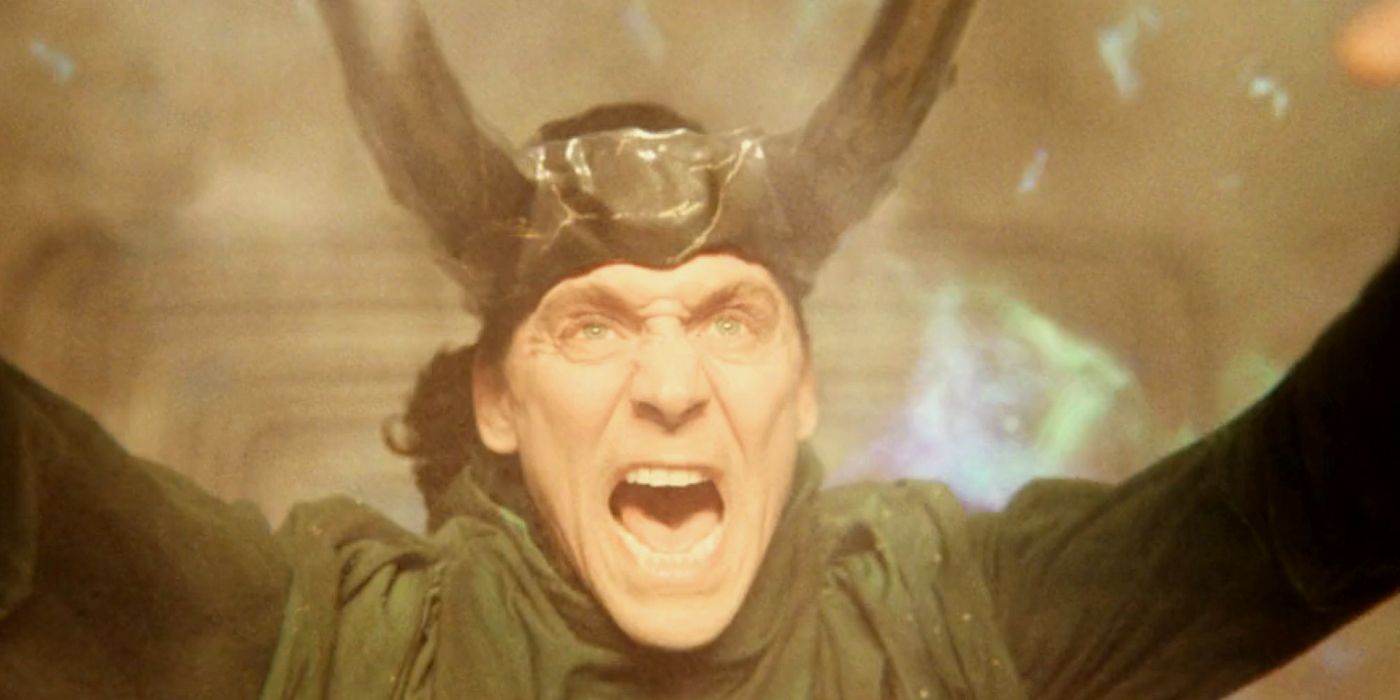
Summary
- Loki’s acceptance of a villainous quest in The Avengers foreshadows his ultimate role as the God of Stories in Loki season 2.
- The scepter given to Loki in The Avengers housed the Mind Stone, showcasing Loki’s ability to wield powerful Infinity Stones.
- Loki’s ability to withstand and manipulate temporal radiation in Loki season 2 reveals his inherent power, which he had been unknowingly demonstrating since his time with the Mind Stone.
Loki has assumed his place in the MCU as the God of Stories during the ending of Loki season 2, and the first scene in The Avengers justified his ascension a whole 11 years prior. With Loki being such a mainstay of the MCU, it can be easy to forget that the star of the Disney Plus series Loki is different to the original Loki on the Sacred Timeline, who faced a longer stint as a villain. Despite this, the short time the Disney+ show Loki had in the main MCU timeline – in Thor and The Avengers – was still enough to set up his ultimate role, while his Sacred Timeline variant worked to launder Loki’s image on an emotional level.
The Avengers opens with a short scene that depicts Loki interacting with The Other, who is acting on behalf of Thanos himself. This interaction saw The Other bestow Loki with his villainous quest: to recover the Tesseract on earth in exchange for its subjugation under him. Loki, who had just been through quite a lot to get there, saw this opportunity to establish himself as a god among men and accepted, at which point he was given a scepter to aid in his nefarious endeavor.
The Avengers’ First Loki Scene Foreshadows His Crucial MCU Fate

Two key takeaways from the first scene in The Avengers include Loki’s enthusiasm to accept the path to tangible godhood where he could rule over an entire population, and the fact that the scepter was quite easily taken and then wielded as a tool for that end. What was unclear at the time of the movie was that the scepter itself housed an Infinity Stone, specifically the Mind Stone. As surrounding MCU movies depicted, the use of Infinity Stones was no mean feat that no mortal could pull off. Loki, however, was more than capable of doing so before anybody knew what it was he was wielding.
Other characters who wielded Infinity Stones and failed include the Red Skull and the Collector’s assistant, Carina, with others coming close to falling to their immense power. While Loki’s use of the Mind Stone had begun to warp his own mind – going some way to explaining his particularly evil streak in The Avengers – it’s not the first time that Loki has capably wielded an Infinity Stone and come out relatively unscathed, as he also used the Space Stone a couple of times (including once just before meeting the TVA). What all this suggests is that Loki’s ultimate fate wasn’t all that surprising.
God Loki’s Fate Makes His MCU Arc Look Very Different

Upon becoming the God of Stories, it became extremely apparent just how much power Loki had all along. Whereas the TVA went to great lengths to shield against the Temporal Radiation emanating from the vicinity of the Temporal Loom, Loki was able to take the full blast of radiation unprotected and avoid the gruesome fate that befell Victor Timely on countless occasions. Not only that, but Loki then proceeds to destroy the Loom with his magic and grab entire timelines with his bare hands.
The scene was beautiful and shocking in equal measure, and the starkest demonstration of Loki’s inherent power. Yet given his time with the Mind Stone, it looks like Loki had been demonstrating this inherent power all along. While earlier exploits involved Loki at his weakest, using the Mind Stone was Loki unknowingly preparing for his role as the god he was meant to be, and one of the final stepping stones towards him embodying his glorious purpose as a true god in the Loki season 2 finale.





